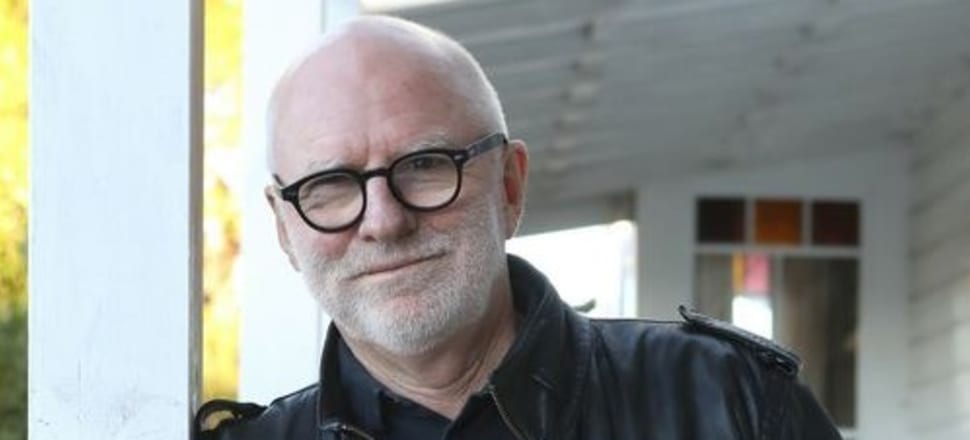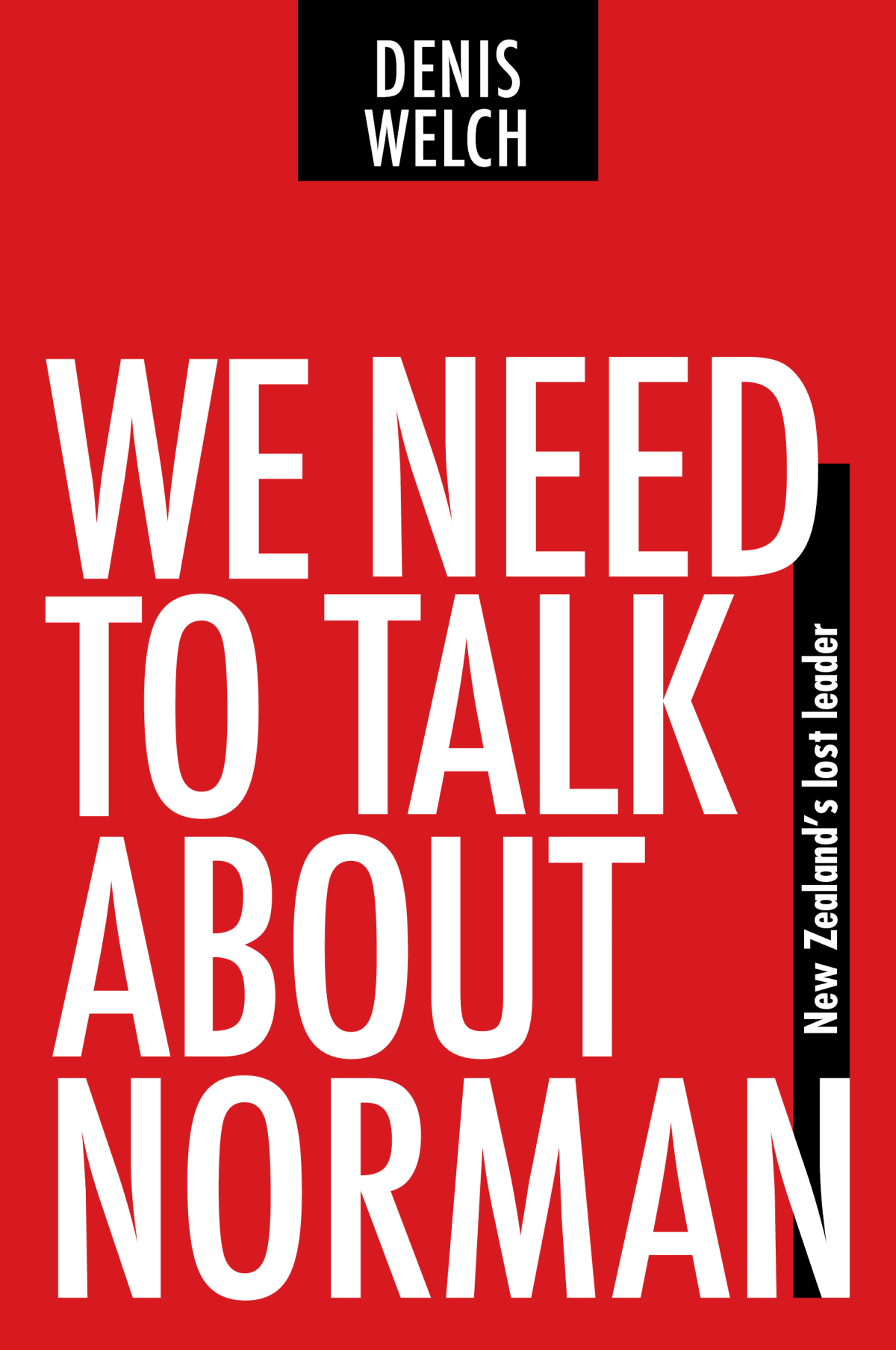
New Zealand's greatest political columnist, the legendary Tom Scott, is generous in his praise of a new portrait of Norman Kirk
Full disclosure: Denis Welch, author of We Need to Talk About Norman, is a friend of mine. For the best part of 10 years, he was a miracle worker, sub-editing my weekly political columns for the Listener. It was no easy task to correct, trim, and refashion my messy, dyslexic, white-out clotted, coffee-cup stained, typewritten copy into altogether more elegant and coherent prose.
Denis loved my jokes and word-play and was no slouch in that department himself. I remember him once describing one lacklustre cocktail function: “The Müller-Thurgau flowed like wine.”
When I was poached by the Auckland Star to write a Saturday column on politics, Denis took over my vacant Listener slot and was instantly brilliant. So brilliant in fact that one day in a back corridor of the old parliament building, the effortlessly courteous National MP for Pahiatua, John Falloon, cornered me to tell me that my recent Listener columns were my best ever. They were all by Denis. Sigh.
When Denis left the Listener to work for Radio New Zealand, one of his many tasks was preparing obituaries of famous New Zealanders and 2nd XI celebrities in readiness for their shuffling off the mortal coil. I just scraped into the latter category and Denis had a brainwave: why not get targeted people to broadcast their own obits in advance, and then chat to them afterwards about how they had been represented? Denis asked me to be the first guinea pig. It was too spooky, fate-tempting, macabre and Waking Ned Devine for me, and I declined.
When I read We Have to Talk About Norman, Denis’s latest political biography (he also wrote Helen Clark: A Political Life in 2009) which is in essence a long, loving obituary and tender homage to Norm Kirk, I realised I may have missed out on something wondrous and flattering. If this review doesn’t cut the mustard, Denis still has time to rewrite my RNZ obit as a savage hatchet job.
What makes the book truly remarkable is that Denis was absent overseas for much of Kirk’s short time as Prime Minister. The rich detail, much of which was new to me even though I covered this period for the Listener, as well as the insights, clarity and accurate capture of the mood and tone of those tragic turbulent years, are a tribute to Denis’s diligence and painstaking research.
As the fortunate beneficiary of a new heart-valve and a triple-coronary bypass myself, I found the sheer accumulation of forensic data on Kirk’s deteriorating cardiac and circulatory issues to be heartbreaking, nightmarish, and frustrating reading. At times I screamed inwardly, “Why is this poor bastard not getting the care and affection he clearly deserves?”
It’s hard to conceive now of a modern New Zealand prime minister ever being so isolated and neglected. But Jacinda Ardern – in the dead of night, in creaking, groaning Premier House, nestled at the base of Tinakori Hill in the Wellington suburb of Thorndon, with the wind howling in the eaves and macrocarpa branches lashing double-hung windows, her child sleeping upstairs, and who sat alone opening hate mail and fielding vile phone calls detailing unspeakable acts of torture and cruelty destined for her family – comes close.
Like Kirk, Ardern rose to dizzy heights and was a heroic inspirational figure in the early months of her prime ministership. Like Kirk, she left office prematurely with much unfinished business. As Denis points out Ardern often cited Kirk as an inspiration and loved repeating one of his quotes. She said, “There is an old saying of Norman Kirk’s that I really treasure. He once said that people don’t want much, just someone to love, somewhere to live, somewhere to work, and something to live for.”
It was unspecified, but to morally conservative Kirk that someone to love had to be a member of the opposite sex. This hasn’t stopped openly gay Grant Robertson from repeating the manta also.
At the very time Kirk was saying this, Earl Butz, Richard Nixon’s secretary of agriculture, was repeating a another kind of incantation, memorable for its racism: “I'll tell you what the coloureds want. It's three things: first, a tight pussy; second, loose shoes; and third, a warm place to shit." Butz told it to singer Pat Boone on a private jet from Washington to Los Angeles. The remark was within earshot of slippery Nixon aide, John Dean, who passed it on to Rolling Stone magazine. In the wake of the firestorm of outrage, Butz had to resign.
As Denis makes clear, Kirk was too prim and too noble in intent, purpose and deed to ever descend to those depths. Denis’s description of Kirk’s wondrous first two years in office – challenging French nuclear testing in the South Pacific, saving Lake Manapouri from raised lake levels, cancelling a Springbok Tour, opening up links to Black Africa and Asia, planting the seeds of the renaissance of te reo and the setting in train the righting of historical wrongs with the Waitangi Act – make stirring reading and refuel the pride and bring back into focus the sense of national identity we felt at the time. His book also serves as a blistering denunciation of neo-liberal economics and Rogernomics.
More thorough than Michael King, less opinionated than Tony Simpson, more empathetic than Michael Bassett, less dense than Brian Easton and more eloquent than Chris Trotter, Denis mounts a powerful case for Kirk being one of our greatest leaders.
That Kirk dropped so quickly off our radar screens and vanished so quickly from our collective consciousness is shameful, but it's often the consequence of excessive grief. The tumultuous bereavement felt in the wake of the death of Princess Di – and our own Paul Holmes – was followed by a curious silence, as if we suspected we had overdone things in the first place.
Denis’s book makes it obvious why we were right to mourn Kirk’s passing and why we need reminding of what his death robbed us of – what we could have become as a country. We need to talk about Norman, indeed.
We Need to Talk About Norman: New Zealand's Lost Leader by Denis Welch (Quentin Wilson Publishing, $40) is available in bookstores nationwide.








